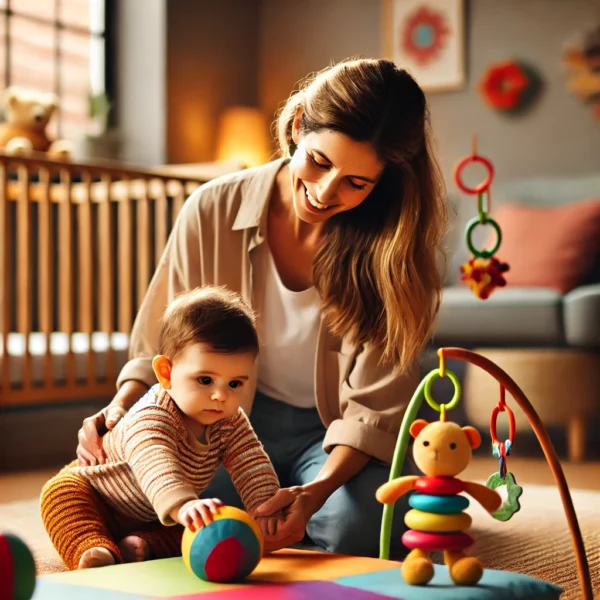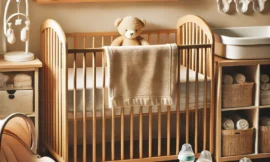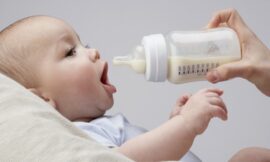Understanding and Supporting Babies with Developmental Delays: A Guide for Parents

Developmental delays refer to when a child doesn’t reach certain milestones at the expected age, which can affect areas like motor skills, speech and language, cognitive abilities, and social skills. Recognizing and addressing developmental delays early can help maximize a child’s potential. Here’s a guide for understanding and caring for babies with developmental delays:
1. Understanding Developmental Delays
Types of Delays: Delays may impact a single area, such as speech (communication delay), or multiple areas, such as physical movement and problem-solving (global developmental delay). Common areas of delay include:
- Motor Skills: Delays in physical abilities, such as sitting up, crawling, or grasping objects.
- Speech and Language: Delays in babbling, speaking words, or understanding language.
- Cognitive Skills: Delays in problem-solving, memory, and learning abilities.
- Social and Emotional Skills: Difficulty with bonding, interacting, or showing interest in social play.
Possible Causes: Developmental delays can result from genetic conditions, premature birth, complications during birth, infections, or other medical issues. Sometimes, the cause is unknown.
2. Identifying Signs of Developmental Delays
- Missed Milestones: While every child develops at their own pace, certain milestones are expected within specific age ranges. For example, if a baby isn’t sitting up by around 9 months, it might signal a delay in motor development.
- Communication Issues: Delays in babbling, responding to sounds, or making eye contact may indicate a speech or social delay. By one year, most babies can say simple words and engage in back-and-forth play.
- Limited Social Interaction: Lack of interest in social interaction or poor eye contact might signal a delay in social development, often visible from infancy.
- Difficulty with Movement: Babies with motor delays may struggle to roll, reach, crawl, or show weak muscle tone.
3. Early Intervention and Professional Support
- Pediatric Assessments: If you notice signs of developmental delays, consult a pediatrician. They can refer you to specialists such as pediatric neurologists, physical therapists, speech therapists, or early intervention programs.
- Early Intervention Programs: These are specialized services designed to support children under three years of age who have developmental delays. They provide resources and therapies to help children reach developmental milestones.
- Individualized Plans: Specialists can create individualized plans based on your child’s unique needs, offering targeted exercises and activities that help develop specific skills.
4. Supporting Motor Development
- Encourage Movement: Give babies safe tummy time, which strengthens their muscles, improves coordination, and encourages reaching and rolling.
- Play-Based Exercises: Play activities, like reaching for toys, help improve fine and gross motor skills. Simple activities such as clapping, waving, and gentle stretching are beneficial.
- Use Adaptive Equipment: Therapists may recommend equipment, such as supportive chairs or specialized toys, to help babies with physical delays strengthen their muscles and improve coordination.
5. Encouraging Language and Communication Skills
- Talk and Sing Often: Even if your baby isn’t speaking yet, talking to them and singing can expose them to language patterns. Pointing out objects, using gestures, and using short, simple sentences can help.
- Read Daily: Reading to babies, even at a young age, is beneficial. Board books with bright pictures, simple words, and repetitive language support early language development.
- Respond to Sounds and Gestures: Babies use sounds and gestures to communicate. Respond to these attempts to reinforce communication skills, even if they’re just cooing or pointing.
6. Fostering Cognitive Development
- Encourage Exploration: Allow babies to explore their environment safely. Providing age-appropriate toys can stimulate curiosity and problem-solving skills.
- Use Sensory Activities: Activities involving textures, colors, and sounds stimulate the brain and support cognitive development. For example, a baby-safe mirror can help with self-recognition, while sensory mats provide texture and encourage movement.
- Simple Problem-Solving Games: Hide-and-seek games with toys can help babies start developing early problem-solving abilities.
7. Promoting Social and Emotional Development
- Bonding Activities: Spend quality time bonding through eye contact, gentle touch, and responsive communication. Activities like baby massage can strengthen the bond and foster emotional security.
- Interactive Play: Encourage turn-taking games, like rolling a ball back and forth, to help babies learn about social interaction.
- Praise and Reassurance: Celebrate every small achievement to build confidence and resilience. Respond positively to their cues, helping them feel safe and understood.
8. Managing Expectations and Finding Support
- Celebrate Progress, No Matter How Small: Development may take time and might happen in small steps. Celebrate each achievement, no matter how minor, to maintain motivation and positivity.
- Seek Support Groups: Connecting with other parents who have children with developmental delays can provide emotional support and valuable insights into resources and effective strategies.
- Be Patient and Persistent: Progress might be slower, but with consistent support and a positive approach, children with developmental delays can make meaningful strides.
9. Regular Monitoring and Reassessment
- Track Progress: Keep a record of your child’s achievements and progress in different areas. This will help you and healthcare providers monitor improvements and adjust goals.
- Routine Checkups: Regular appointments with healthcare professionals allow for adjustments to intervention plans and can help you stay informed about new techniques or therapies.



